
Still, the Russian opposition lives on-not just in would-be leaders behind bars like Vladimir Kara-Murza, who following the death of Alexei Navalny is now Russia's most high-profile political prisoner, but also in the spouses who take up their advocacy when they're no longer able to do it themselves.
Ever since Vladimir's arrest in April 2022 for criticizing the war in Ukraine, Evgenia Kara-Murza has spent most of her days traveling the world to meet with foreign dignitaries, testify before committees, and talk to journalistsall in a bid to bring her husband, and the scores of other political prisoners in Russia, home. When TIME first sat down with her on the sidelines of the 15th Annual Geneva Summit for Human Rights and Democracy last year, she stressed that she was no politician. "I never wanted to be a public figure," she said.
Yet there she was, delivering speeches and giving interviews about the plight of political prisoners, the importance of supporting Ukraine against Russia's ongoing invasion, and the need for Magnitsky sanctions, which target officials who violate human rights. "She basically stepped into his shoes and took over from his work as a member of the Russian opposition, speaking not just about his situation, but about the situation of other political prisoners," says Bill Browder, a British American anticorruption campaigner and close friend of the Kara-Murza family. "She feels it's her duty to be the best possible representative of him when he's unable to represent himself."
This story is from the {{IssueName}} edition of {{MagazineName}}.
Start your 7-day Magzter GOLD free trial to access thousands of curated premium stories, and 9,000+ magazines and newspapers.
Already a subscriber ? Sign In
This story is from the {{IssueName}} edition of {{MagazineName}}.
Start your 7-day Magzter GOLD free trial to access thousands of curated premium stories, and 9,000+ magazines and newspapers.
Already a subscriber? Sign In
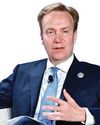
Q & A: Borge Brende
The World Economic Forum president talks with TIME editor Sam Jacobs

Q & A - Rene Haas
Arm's CEO on how his hardware is supporting the Fourth Industrial Revolution
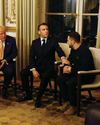
The conflicts looming over 2025
WHEN DONALD TRUMP TOOK THE OATH OF OFFICE AS President in January 2017, his first foreign policy priority was to get tough on China. The Trump 2.0 Administration will continue that work. But when he strides back into the Oval Office in January 2025, Trump will also become responsible for U.S. management of two dangerous wars, the kinds of hot foreign policy crises he was fortunate to avoid during his first term.
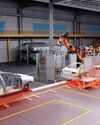
Rev Lebaredian
Nvidia's vice president of Omniverse and simulation technology on training AI-powered robots

5 predictions for AI in 2025
New uses and policy questions come into focus

Roy Wood Jr. The comedian on his new stand-up special, the importance of working in food service, and learning from Keanu Reeves
8 QUESTIONS WITH Roy Wood Jr.
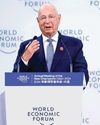
A call for global cooperation in the Intelligent Age
Cultivate wisdom along with innovation
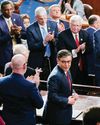
The D.C. Brief
IN THE END, THE THREAT OF A FARright revolt proved more menacing than most imagined, as Republican Mike Johnson initially came up short on Jan. 3 during the first balloting to keep him as Speaker.

The digital labor revolution
OVER THE PAST TWO YEARS, WE'VE WITNESSED advances in AI that have captured our imaginations with unprecedented capabilities in language and ingenuity. And yet, as impressive as these developments have been, they're only the opening act. We are now entering a new era of autonomous AI agents that take action on their own and augment the work of humans. This isn't just an evolution of technology. It's a revolution that will fundamentally redefine how humans work, live, and connect with one another from this point forward.

Tech we can trust
Serving humanity's best interests must be at the center of progress